17 Best Mobile Testing Tools

Mobile Testing Tools
The mobile domain is quickly expanding. Mobile applications are now available in various formats, ranging from video to mobile banking. Because of its enormous profitability, many businesses are attempting to establish a presence in the mobile app industry. Are you looking for the best simulator for mobile testing to create an app? We will help you find it. In this post, we’ll look at the best mobile testing tools to help you enhance your Android and iOS testing coverage, efficiency, and accuracy.

17 Best Mobile App Testing Tools
There are various platforms and operating systems, types of testing scenarios, network connections, and carriers to consider while developing mobile apps. You need the best automation tool for mobile app testing to check them and develop an app. The list of the best mobile app testing tools below contains both open-source and commercial tools for Android and iOS.
See Also:
13 Best File Transfer Protocol Clients for Android
32 Best Games Like Legend of Zelda for Android
16 Best Recovery Apps for Android
Top 11 Best Disney Wallpaper Apps for Android
1. Eggplant

TestPlant created and produced Eggplant, a commercial GUI Automation Testing tool. It tops the list of the best mobile app testing tools for the reasons listed below:
- It’s called eggOn, and it’s used to test Android and iOS apps.
- Eggplant Functional is a visual testing solution that doesn’t require testers to be familiar with Android and iOS messaging.
- It can be used for image-based, mobile, network, web, cross-browser, functional testings, and user interfaces automation.
- It facilitates dynamic testing from the perspective of the users.
- Eggplant Functional can test various app types, including web, mobile, and desktop apps.
- Additional benefits of this program include a single script for all devices, platforms, and full device code.
- In addition, no changes to the app code are required to test the app under test.
- It offers a user-friendly UI.
Also Read: Fix Virus Pop Up on Android
2. TestComplete
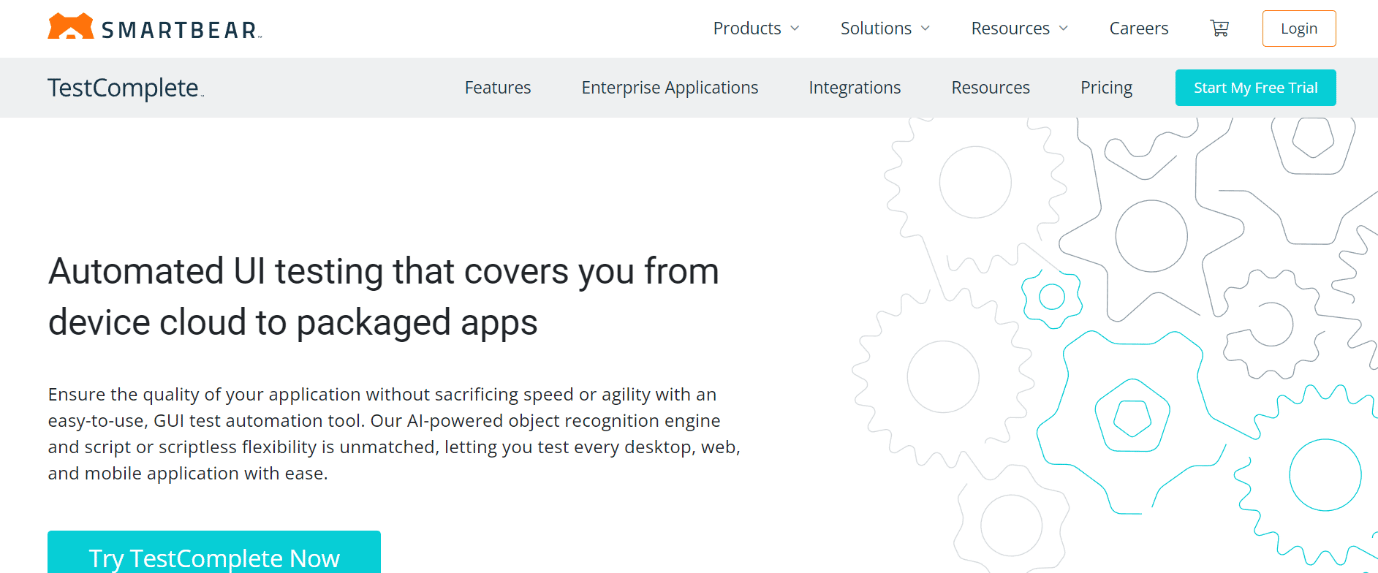
Another excellent mobile application testing tool is TestComplete. It is one of best mobile testing tools because of the significant features given below:
- TestComplete is compatible with both Android and iOS devices.
- You can use TestComplete to build, maintain, and run user interface tests for web, mobile, and desktop apps.
- With TestComplete, you can develop and run repeatable and rigorous UI tests on native and hybrid mobile apps.
- You can use this tool to automate UI testing, use real mobile devices, virtual computers, or emulators.
- You don’t have to jailbreak your phone or tablet while using TestComplete.
- It uses script-free record for automated testing.
- Also, it replays procedures or programming languages (Python, VBScript, JScript, or JavaScript) to create automated test scripts.
- Multiple mobile platforms are supported.
- It integrates with major CI/CD technologies like Git and project management software like JIRA.
- Using actual iOS and Android devices, it can create and perform automated GUT tests.
- It’s a versatile tool that can be used with or without a script.
3. HeadSpin
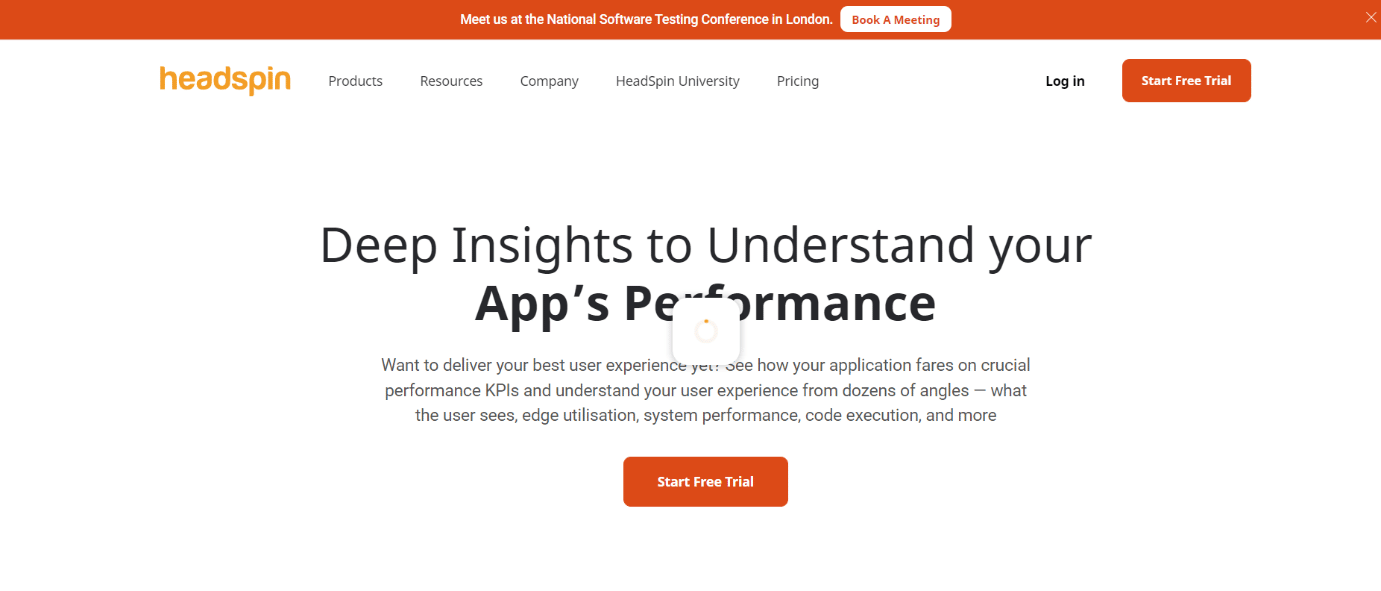
HeadSpin provides 100% accurate manual and automated mobile app testing on actual devices and has the following features:
- Users can remotely test and debug mobile, web, audio, and video apps on thousands of devices.
- For a realistic user experience, test your app under varied network circumstances.
- You will get AI/ML-based insights to fix issues quickly and ship your goods, reducing time to market.
- For 100% accuracy, you can test on real devices.
- A single-tenant approach deployed on and off-prem provided secure testing and enhanced performance.
- It also enables organizations to do edge testing when they are in a certain place and want to test their apps there.
- An intelligent methodology is required to produce aggregation and regression insights at the speed and scale necessary for success in today’s digital economy.
- Regression Intelligence from HeadSpin is a useful tool for comparing deterioration across new app builds, OS versions, feature additions, locations, and more.
- Create Your Own Lab (CYOL) from HeadSpin allows businesses to onboard specific devices to the HeadSpin Platform and conduct automated testing.
Also Read: Fix Samsung Note 4 Battery Draining Problem
4. Kobiton
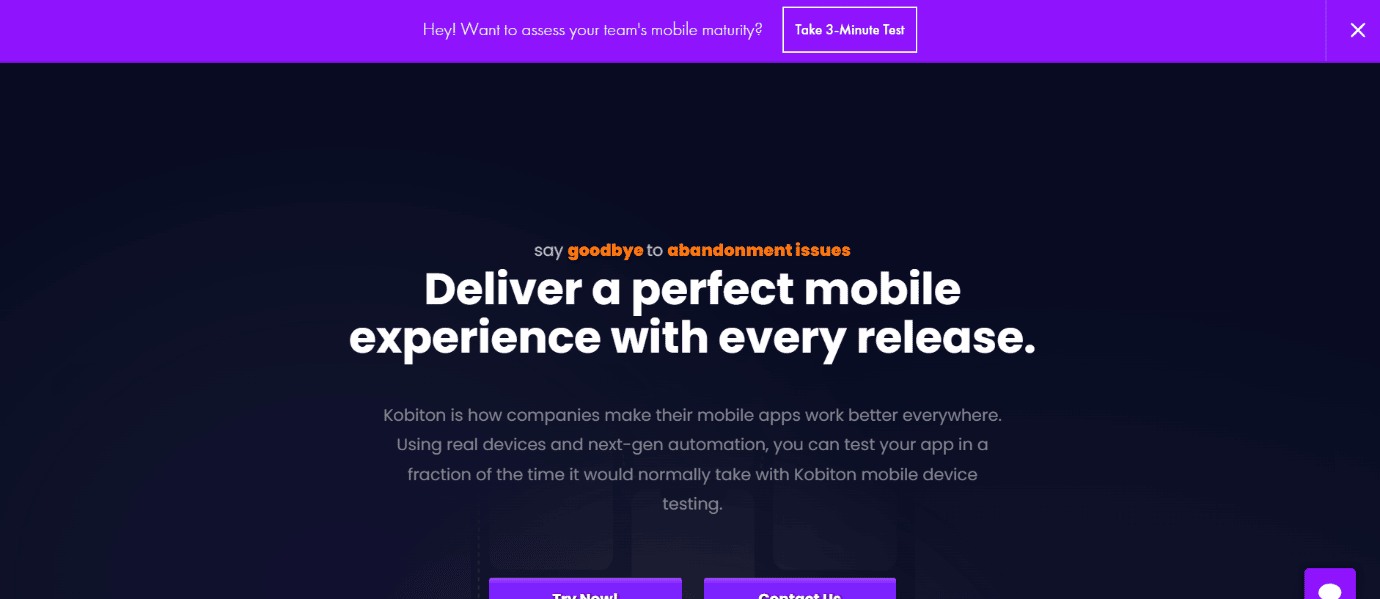
Kobiton is a mobile device cloud platform that gives you access to actual devices to test native, web, and hybrid Android/iOS apps manually and automatically. It takes its place on the best mobile app testing tools list for characteristics listed below:
- Kobiton’s automatically created activity logs capture all the activities taken during a testing session, allowing faults to be recognized and fixed faster.
- For $10, users can purchase never-expiring pre-paid testing minutes.
- Appium is a free and open-source framework.
- Kobiton gives users total control of actual mobile devices during manual testing.
- During testing, it also supports multitouch gestures, orientation and GPS simulations, camera and speaker control, and device connection management.
- It offers centralized testing history and data logs to collaborate in a better way.
- You can regularly update the device lab with the latest hardware and operating system improvements.
- You can test across devices without changing the script.
- It contains the most up-to-date real-world, cloud-based devices and settings.
- Internal Device Lab Management aims to maximize the use of internal devices.
- It provides a more simplified user experience, which speeds up test sessions.
- You can automatically produce activity logs, instructions, images, and metadata, making it easier to spot problems.
5. Avo Assure

Avo Assure is a no-code and heterogeneous test automation solution with the following features:
- It supports Android and iOS that lets you test apps on the web and mobile devices.
- Because of the 100% no-code capabilities, you can test apps without writing a single line of code.
- The heterogeneous feature enables end-to-end test automation.
- This heterogeneous allows you to test applications across the web, Windows, Android, iOS, non-UI (web services, batch processes), ERPs, mainframe systems, and associated emulators using a single solution.
- The user interface is easy to use and intuitive, making testing a joy.
- Using the Smart Scheduling and Execution capabilities, you can execute many scenarios independently or parallel in a single VM.
Also Read: Top 9 Best Free Unlimited VPN for Android
6. Katalon Studio
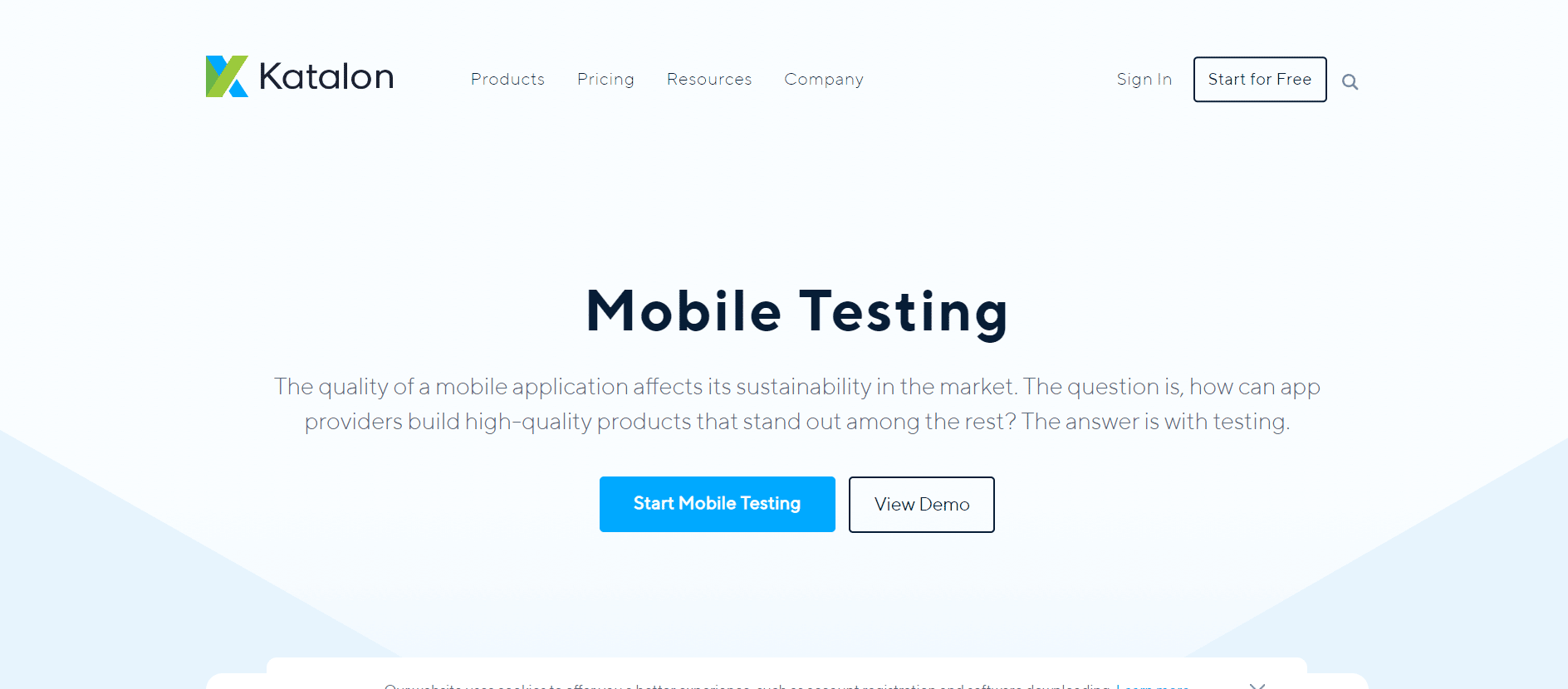
Katalon Studio is the most popular Appium replacement for mobile testing and has the following notable aspects:
- It comes with increased web, API, and desktop testing capabilities and is trusted by 850,000 users.
- There’s no need for a complex setup or programming skills.
- You can create automated tests with record and playback with built-in keywords, pre-defined project templates, and a user-friendly interface.
- Due to the integration of Kobiton, Perfecto, SauceLabs, LambdaTest, and BrowserStack, cross-environment testing on actual devices, emulators, or cloud-based devices is possible.
- You can reduce your maintenance time by using a powerful object spying tool.
- It offers advanced graphs for seeing critical metrics and real-time notifications after each run (Slack, Git, & Microsoft Teams).
7. Bug Hunter
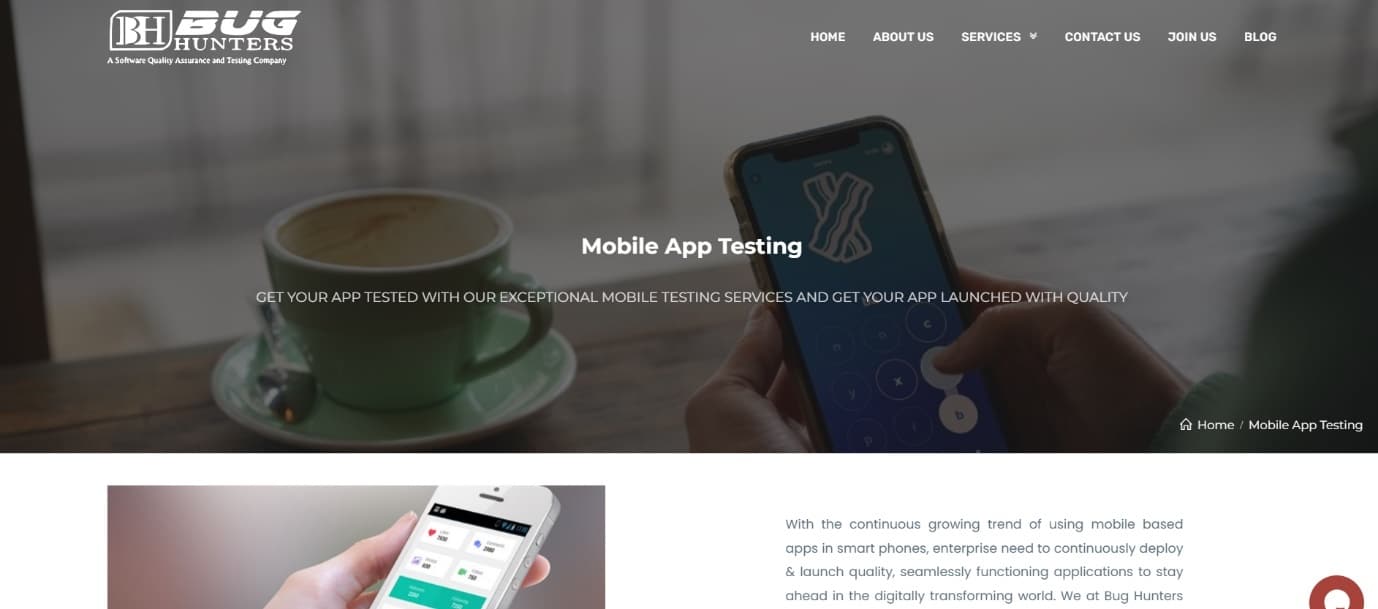
Bug Hunter is a manual Android app testing tool that focuses on user interface testing. It is one of the best tools due to the features listed below:
- In addition to manual testers, it can be used by Android developers or UI/UX designers to analyze the app or specific aspects before it advances to the QA stage.
- It lets you check that the app’s layout meets the requirements or try out a new design on a real device.
- You can look for half pixels in UI components by finding the color code of any pixel on the screen.
- You have complete control over when you record, pause, and resume the video.
- Hardware specs can be accessed and shared, and screenshots can be annotated with device information.
- Bug Hunter covers all the elements of user interface testing and offers optimum ease in terms of tool availability, with no need to leave the current screen to move between tools or change settings.
- With just one swipe, you can take a screenshot and take high-quality long pictures without manual editing.
- You can determine the sizes of UI components as well as their margins.
Also Read: 9 Best Android Smartphones with Keyboards
8. testRigor
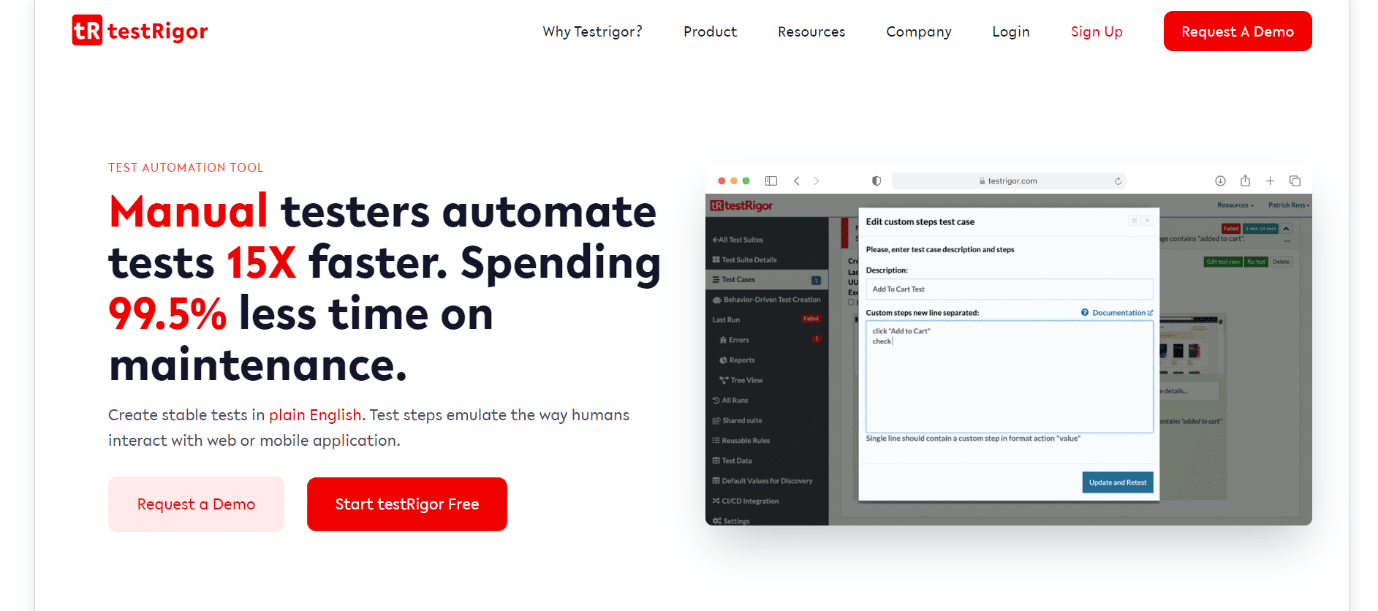
Manual QA will be able to write extremely robust and dependable mobile automated tests for native and hybrid mobile apps and mobile web and APIs using testRigor. It is on the list of the best simulator for mobile testing for the following reasons:
- They are the only business that can solve the Test Maintenance Issue.
- Their No Code method does not necessitate any coding expertise, product implementation details, xPath, CSS, or other technical skills.
- Emulators and simulations, as well as physical devices, are supported. Integration with BrowserStack is possible.
- When compared to Appium, manual testers can automate tests up to 15 times faster.
- On average, maintenance takes 99.5% less time.
- Customers can achieve automation coverage of up to 90% in less than a year.
- It has several advanced functions, including audio testing and SMS/text validation.
9. Appium
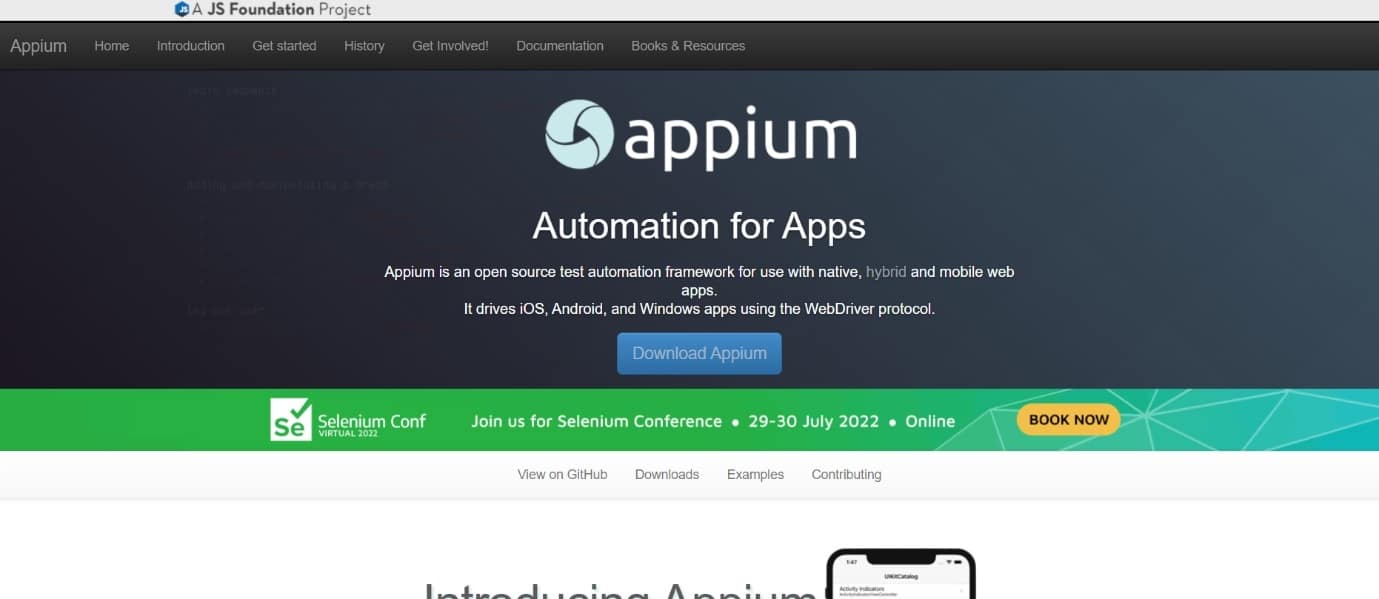
Appium is an open-source tool to automate native, mobile, web, and hybrid apps for the iOS and Android platforms. It is one of the best mobile testing tools for the aspects listed below:
- Appium aims to automate mobile app testing without any changes to the apps themselves.
- This tool supports Safari on iOS and all the built-in browser programs on Android.
- There is no need to update any program code for testing since it is compatible with Android and iOS devices and emulators.
- Through the WebDriver protocol, you can run Android, iOS, and Windows programs.
- The tool is frequently updated due to its support by a large community of active users on GitHub.
- Appium is a full-featured automated testing system.
- Appium is built on the Selenium toolkit for automating browsers used by testers.
- However, its user interface is difficult.
Also Read: 11 Best Cheap Cell Phone Booster
10. UI Automator
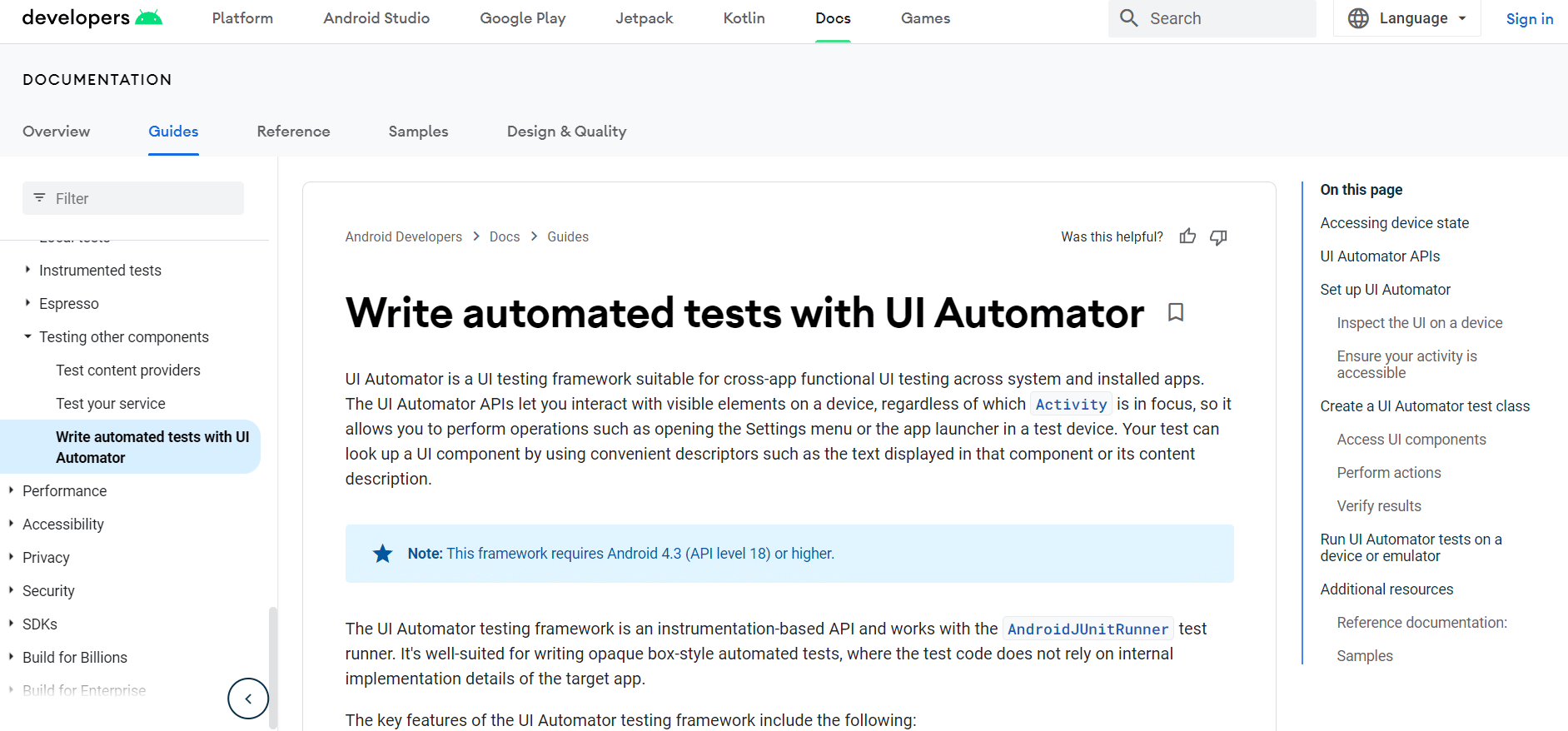
UI Automator is an open-source framework that enables automated functional test cases to test the user interface. It makes its way to the list of the best automation tool for mobile app testing because of the following reasons:
- It’s possible to launch an app on more than one device.
- The UI Automator API contains class interfaces and exceptions.
- This API is bundled as the UI Automator.jar file inside the /platforms/ directory.
- The UI Automator framework uses scripts created in JavaScript.
11. Unified Functional Testing
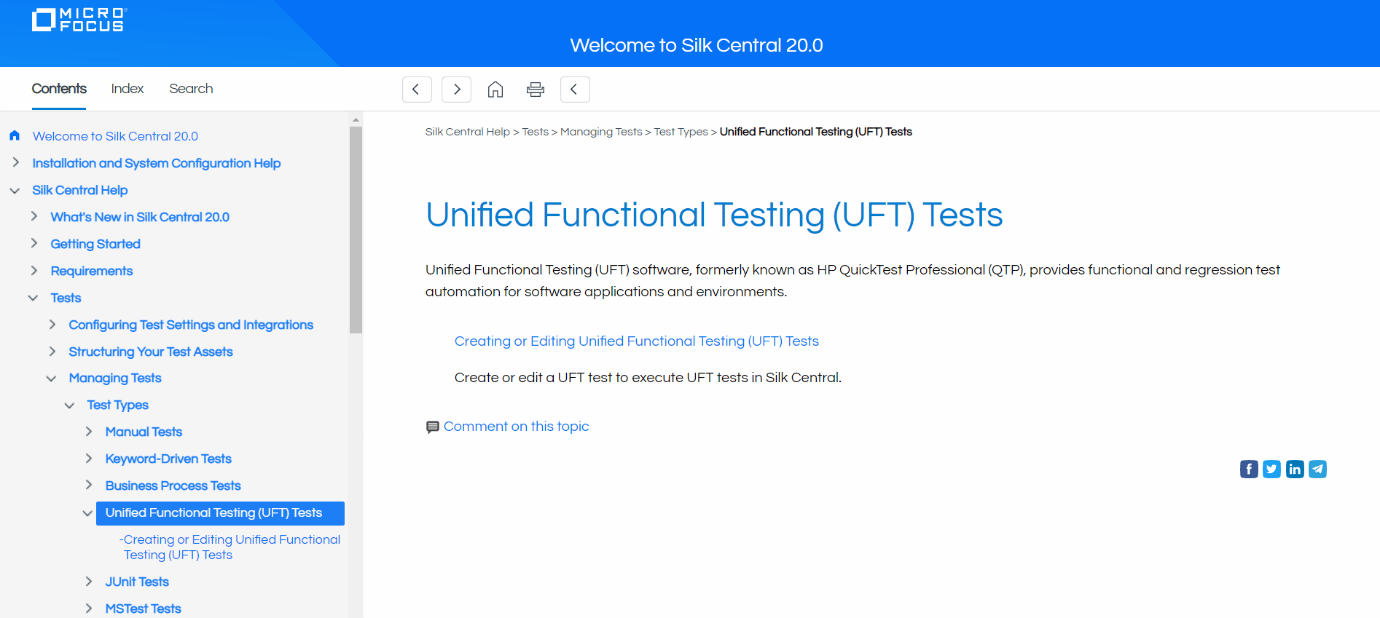
UFT, formerly known as HPE QuickTest Professional, is a market leader in test automation (QTP). It is one of the best simulators for mobile testing for the reasons listed below:
- This tool works with various popular browsers, including Firefox, Safari, Chrome, and Internet Explorer.
- It allows QA teams to increase the efficiency and communication of their testing.
- It is the best tool for testing on iOS, Android, and Windows.
- The time to test an app is getting shorter, and its quality is improving.
- QA engineers see significant differences after adopting UFT.
Also Read: 10 Best Screen Mirroring App for Android to Roku
12. TestProject

TestProject is the world’s first free cloud-based, community-powered test automation platform and has the following aspects:
- It allows users to test web, Android, and iOS apps across all operating systems fast and efficiently.
- You can collaborate with your team to ensure quality and speed using Selenium and Appium.
- It offers design programmed tests, developed and utilized add-ons, or extensive built-in recording tools with TestProject’s sophisticated SDK.
- All these features are available for free.
- There are no difficult setups or configurations to worry about.
- You don’t need any coding experience to get started.
- Your whole team and community can use and share add-ons.
- It easily integrates with your CI/CD process.
- It provides you with detailed dashboards for your reports.
13. Perfecto

Perfecto is the industry’s most popular mobile app testing cloud. It is one of the best mobile testing tools for the significant characteristics listed below:
- With Perfecto, you can create amazing digital experiences faster and more confidently.
- It facilitates unparalleled platform and testing scenario coverage.
- You have to ensure your apps are optimized for mobile devices.
- You can test both web and mobile apps on a single cloud platform.
- For faster feedback and fixes, you can use smart analytics.
- Test frameworks, CI/CD technologies, and IDEs have robust integrations.
- You can access new devices, operating systems, and other software on the same day.
- It also offers security and scalability fit for an enterprise.
- It provides deep technical experience and assistance to assist you in achieving your goals.
Also Read: Top 9 Best Free Unlimited VPN for Android
14. ZeuZ
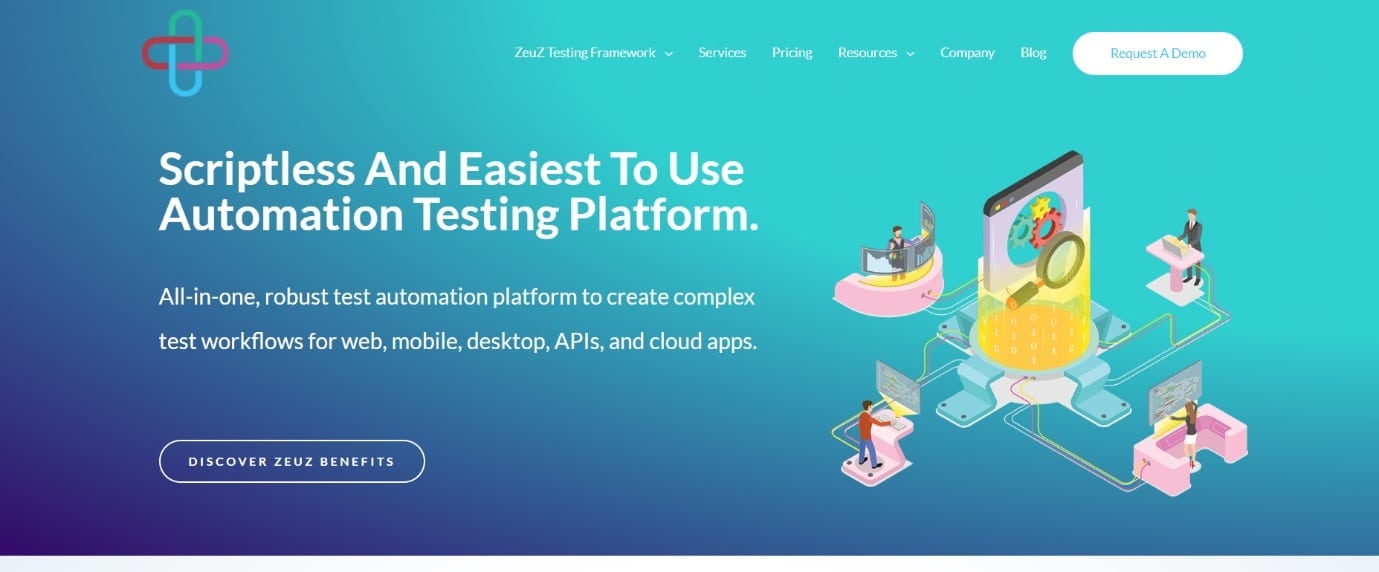
ZeuZ automation is a script-free, AI-assisted automation platform that testers and developers love.
- It offers object recognition enabled by AI and built-in waiting mechanisms.
- It creates tests once and runs them concurrently on iOS/Android (real/simulator), Cloud, Web, Desktop, API, and IoT.
- With CI/CD integration, Device-Farm, Trunkey Solution, intelligent debugging, rich reporting, and collaboration features, ZeuZ delivers on the promise of true end-to-end automation.
- It facilitates hundreds of test cases with built-in program logic, no code, or a user interface covering all technologies in a single test case.
- You can organize and conduct manual and automated functional, regression, UI, performance, data-driven tests, Rich reporting/Notification, JIRA Integration, and more.
- It also offers custom actions and scripts for advanced debugging API (dive down, intelligent issue grouping, step testing).
14. Robotium
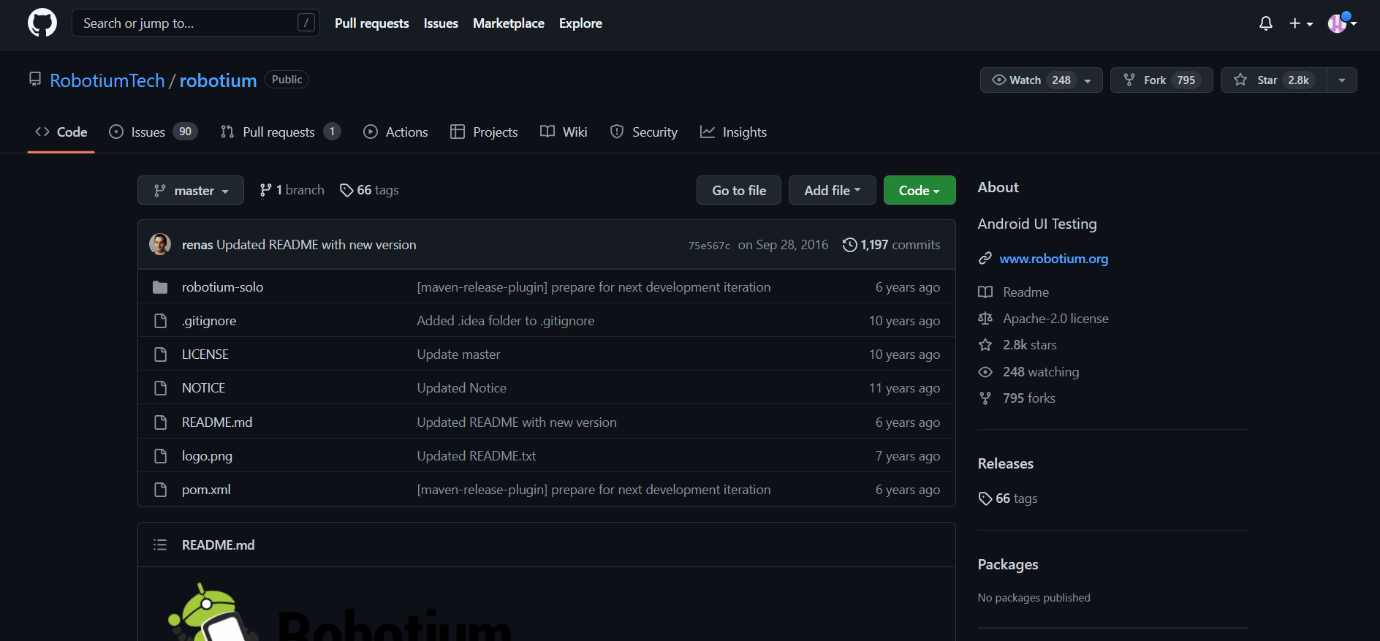
Robotium is also one of best mobile app testing tools. It is free and open-source tool, and has the following characteristics:
- This tool can evaluate both source code-based apps and apps with an APK file.
- It can produce automated test cases and make basic automation test scripts.
- Test case developers can use Robotium to generate function, system, and acceptability test scenarios for many Android processes.
Also Read: Top 16 Best Budget Phablet
15. Espresso
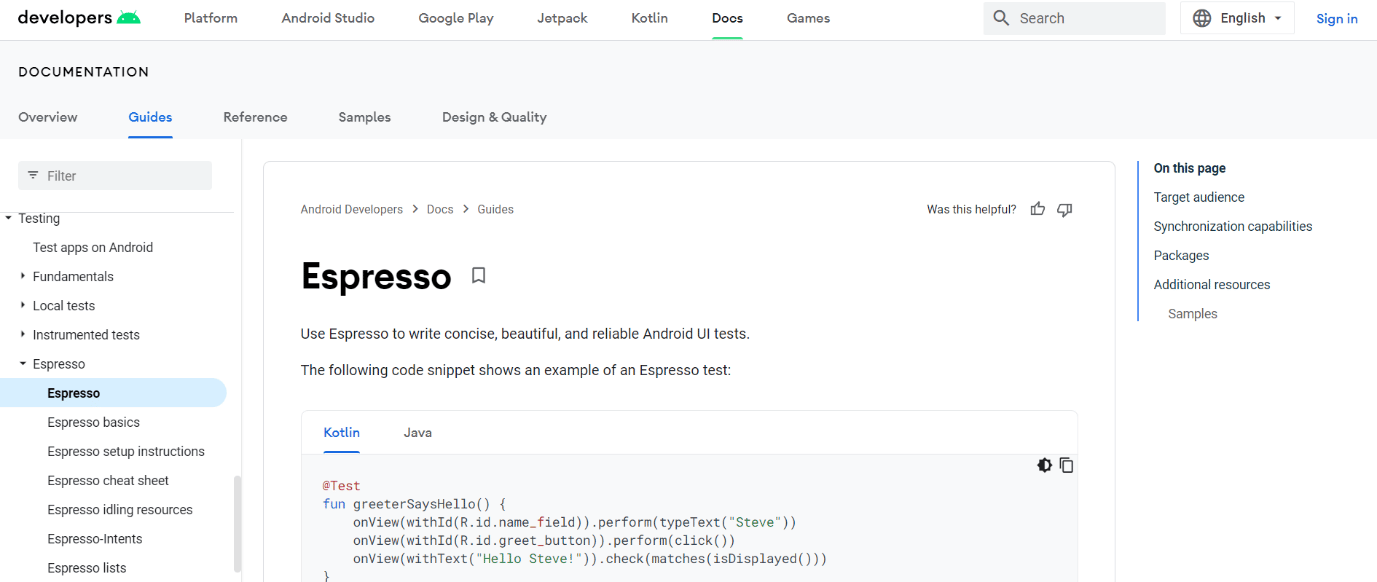
Espresso is a Google-developed testing automation tool for Android apps. It is one of the best tools available on this list for the following features:
- Espresso is an open-source object-based testing system.
- Espresso can be tough to utilize for inexperienced testers.
- For black-box and unit testing, it’s a fantastic tool for experienced mobile devices.
- Espresso is a test automation framework for Android that allows you to prepare and deploy user interface tests.
- Developers can design a test scenario and record their interactions with a mobile device.
- Also, they can use snapshots to check the functionality of UI components based on the analysis.
16. Test IO

Many well-known firms have picked Test IO as their crowd testing partner. It is one of the best simulators for mobile testing for the following reasons:
- All testers on Test IO are NDA-compliant because it is a human-driven testing platform.
- They thoroughly test your software and identify any flaws that the development team can have missed.
- Test IO is the best for crowd testing, and it’s also a robust platform for mobile app testing.
- Test IO also provides black-box, usability, functional, regression, wearables, beta, and mobile testings.
- In addition, trained human testers use the Test IO platform to test mobile and web applications on actual devices continuously.
- It also helps businesses broaden their test coverage to include real-world platforms, devices, and people.
- There is only one requirement for utilizing Test IO: your application must be compatible with all versions of the Android and iOS operating systems.
Also Read: Top 34 Best Web Testing Tool
17. Apptim
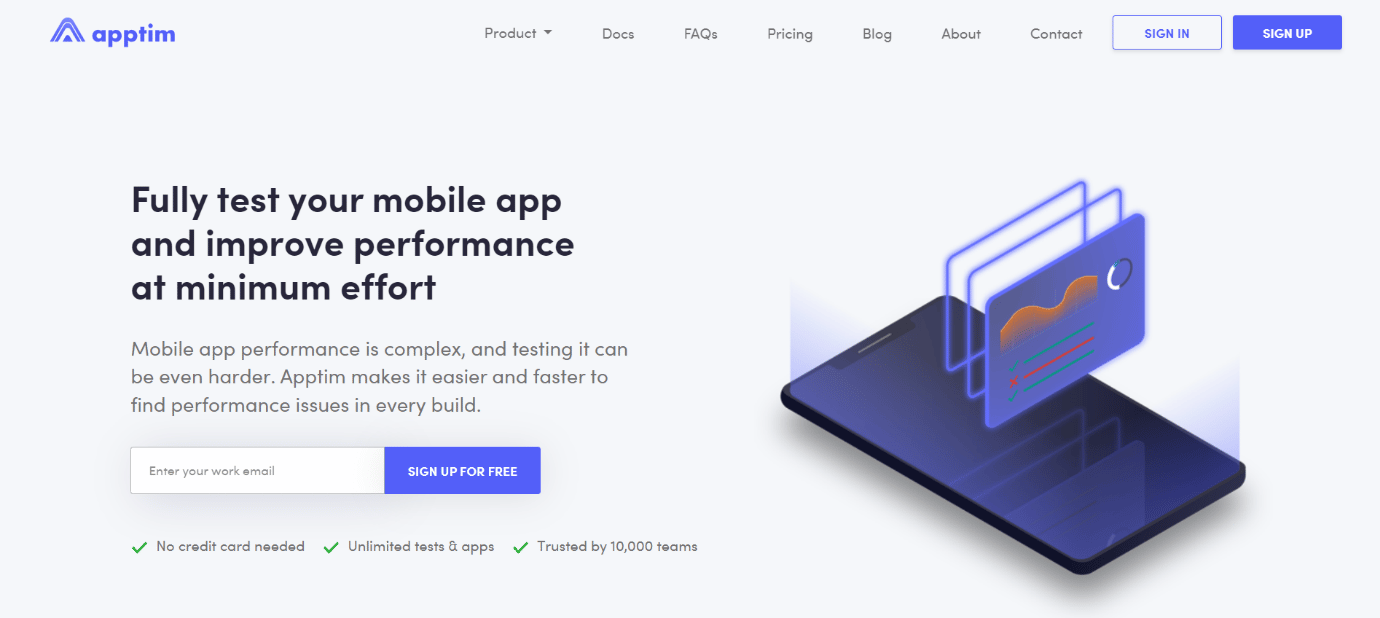
Apptim is one of the most effective mobile app testing tools for evaluating the performance of mobile apps. It is one of the best mobile testing tools because of the reasons that are listed below:
- Apptim has made it easier and more controllable for users to identify performance concerns in mobile apps instantly.
- It integrates with JIRA seamlessly, allowing you to post and monitor problems.
- It allows you to test native programs on Android and iOS devices.
- The comprehensive and robust performance dashboard displays performance comparisons across several test sessions.
- It also allows users to execute performance tests locally and share or store the results with their colleagues.
- Shift-left mobile performance testing is a part of Apptim.
- It allows you to thoroughly test the performance of new code, application builds, and deployments.
- Apptim also offers a user-friendly UI so that anyone can use it.
Recommended:
We hope that this article was useful and that you have learned about best mobile testing tools. Let us know which was your favorite tool. If you have any queries/suggestions regarding this article, please drop them in the comments section. Also, let us know what you want to learn next.